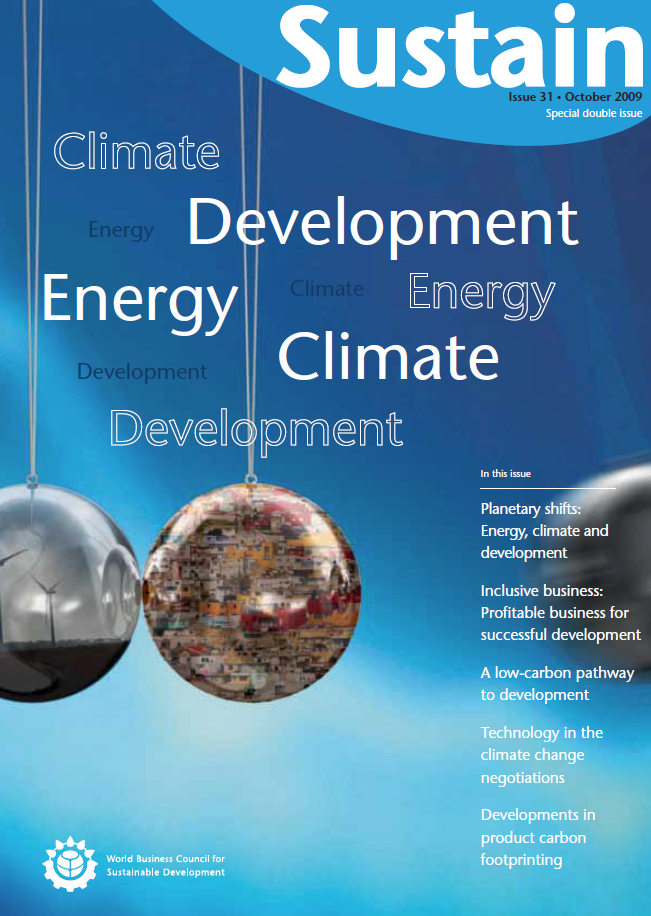
Emerging and developing countries will be the source of the majority of greenhouse gas emissions in the future. While some people in many of these countries have experienced triple digit increases in income over the last ten years, many still live on less than US$ 2 a day and rely on traditional means of lighting, heating and transport and have less capacity to adapt to the negative aspects of climate change. Energy, climate change and development are inextricably linked; if we don't tackle them together we won't win the battle against any of them.
Copenhagen has become synonymous with an agreement on climate change that could result in far reaching changes in the way global society functions. Solid scientific evidence shows that human activities, notably the way we produce and use energy, have resulted in an increase in global atmospheric concentrations of greenhouse gases that are linked to global warming. The inexorable demand for energy continues and unless we decouple the link between economic growth and these emissions we will create a situation that is irreversible.
“Development and climate change are the central problems of the 21st Century. If the world fails on either, it will fail on both. Climate change undermines development. No deal on climate change which stalls development will succeed,“ says Sir Nicholas Stern, economist and author of the Stern Review Report on the Economics of Climate Change.
Highlighting this, global energy demand is forecast to increase 40% by 2030, with the majority coming from developing countries, whose share of greenhouse gas emissions is expected to rise from 39% today to 52% by 2030. Yet worldwide some 1.6 billion people lack access to electricity, and about 2.4 billion people do not have clean and safe cooking fuels. Current trends suggest that by 2030, electrification rates will not exceed 50% in sub-Saharan Africa or 65% in South Asia.
Living without electricity can be expensive. Those without grid access are estimated to be spending US$ 5-15 per kilowatt/hour for energy versus 15 cents per kWh for the average grid consumer, and their total expenditures on such things and kerosene and candles for lighting range from 10 billion to 30 billion US dollars. This, combined with the ambitions to reduce global carbon emissions, presents the world with the dual challenge of providing access to energy and its accompanying development opportunities while shifting to low-carbon energy sources to manage climate change.
The WBCSD recognizes the urgent need for companies to support development while spurring a move toward a global low-carbon economy, the economy of the future. This edition of Sustain highlights the important links between energy, climate and development.

